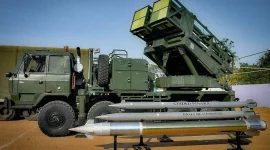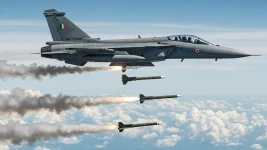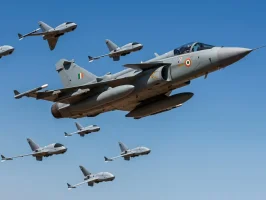- Views: 1K
- Replies: 2
India is poised to make a significant leap in unmanned combat aerial vehicle technology with its ambitious Remotely Piloted Strike Aircraft (RPSA) project. As preparations for the crucial Cabinet Committee on Security (CCS) papers gain momentum, the project stands at a pivotal juncture, awaiting the final approval that could propel it forward.
The RPSA's journey towards becoming a reality involves rigorous scrutiny at the highest levels of government. CCS approval is not merely a procedural step but a critical decision that could unlock the necessary funding, resources, and strategic focus for this high-stakes project. With the Indian Air Force (IAF) expressing strong confidence in the RPSA's potential, there is growing optimism that the CCS will greenlight the project.
At the heart of this endeavor, scientists at the Aeronautical Development Establishment (ADE), are diligently refining the technologies that will define the RPSA. A senior DRDO official confirmed that ADE scientists are focusing on reducing the Radar Cross Section (RCS) of the aircraft, a crucial factor in maintaining stealth capabilities and ensuring the RPSA can evade sophisticated enemy air defences.
One of the most innovative aspects of the RPSA project is the integration of AI tools to minimize RCS. This involves using artificial intelligence to dynamically adjust the aircraft's shape and material properties in real-time, adapting to threats from radar systems. This approach pushes the boundaries of unmanned systems technology and requires a deep understanding of both AI and materials science.
The RPSA project is not just about technological advancement; it's about strategic military enhancement. A stealth-capable UCAV like the RPSA would provide the IAF with a significant advantage, allowing for deeper penetration into hostile territories for reconnaissance, surveillance, and precision strikes without risking human pilots.
As the CCS deliberations approach, the world is watching India's progress in unmanned aerial systems. The RPSA project has the potential to set a new standard for India's defence industry, showcasing its ability to innovate and deliver advanced, strategically valuable solutions. With the backing of the IAF and the dedication of ADE scientists, the RPSA is poised to redefine aerial warfare for India.





